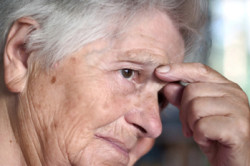Top Class Actions’s website and social media posts use affiliate links. If you make a purchase using such links, we may receive a commission, but it will not result in any additional charges to you. Please review our Affiliate Link Disclosure for more information.

Signs of Nursing Home Abuse
There are some signs of nursing home abuse that the family of elders in these kinds of facilities should be wary of to help ensure the safety of their loved one. Because elder neglect can lead to physical injuries or medical issues when they are not properly and consistently cared for, one of the most prominent signs of nursing home abuse is declining health or physical suffering.
Prominent signs of nursing home abuse can include:
- Bed sores
- Pressure sores
- Fractures from falling
- Malnutrition
- Dehydration
- Chronic infections
- Frequent urinary tract infections (UTIs)
Filing a Nursing Home Abuse Lawsuit
Some of those who have been affected by abuse or neglect in nursing homes are turning to litigation. One Georgia woman recently filed a lawsuit against Gwinnett Operations, alleging that her mother Lucille D. was neglected and abused in her nursing home, ultimately leading to her death a few weeks after she was first admitted.
Lucille was admitted to Life Care Center, part of Gwinnett Operations, on Nov. 4, 2016 for short-term rehabilitation care. Upon her admission, she was “at risk for break in skin integrity,” according to the lawsuit filed by her daughter.
However, in the following weeks, Lucille was allegedly neglected at this facility. The lawsuit alleges that signs of nursing home abuse appear in her medical charts while at Life Care Center—both in the information present and in what was left out.
When Lucille first arrived, it was noted that she was at moderate “risk for break in skin integrity.” Just over a week later, Lucille’s chart noted that she had an “Open Area” on her sacrum, with no other documentation.
No updates were included for a few days, and no indication of treatment or intervention for this injury, and then a nurse noted on the chart that Lucille was in need of more assistance. The chart notes that her physical therapy was discontinued shortly thereafter with no explanation.
Then, nearing the end of November, the chart documents an unstageable pressure ulcer measuring 4.9 inches across—and 80 percent necrotic. At this point, it was noted that an ointment was applied to this area, but no previous treatment had been documented for this wound.
Just a few days later, Lucille’s medical charts once again indicate that she did not have a skin breakdown—despite very serious unstageable pressure wound noted days before. She was soon thereafter sent to the hospital.
The lawsuit alleges that at this point, the hospital noted her “altered mental status, hyperglycemia, fever, acute renal failure,” as well as sepsis caused by her infected sacral pressure wound. Lucille died a week later.
Lucille’s daughter Michelle filed a nursing home abuse lawsuit on behalf of her late mother, alleging that Life Care Center and its staff failed to provide adequate and necessary care for Lucille during her weeks there, failed to properly treat her pressure ulcer and ultimately contributed to her injuries and death.
Michelle filed her lawsuit on Feb. 28, 2018 on multiple counts, including professional negligence, imputed liability, failure to provide sufficient and proper staffing and nursing and several others.
If you have seen signs of nursing home abuse in someone you love, you may be able to file a lawsuit. Filing a lawsuit cannot take away the pain and suffering caused by neglect or abuse in a nursing home, or bring a loved one back to life, but it can help to alleviate the financial burden caused by medical costs, lost wages, and funereal expenses.
The Nursing Home Abuse Lawsuit is Case No. 1:18-cv-00900-ODE, in the State Court of Gwinnett County, State of Georgia.
In general, nursing home neglect lawsuits are filed individually by each plaintiff and are not class actions.
Do YOU have a legal claim? Fill out the form on this page now for a free, immediate, and confidential case evaluation. The attorneys who work with Top Class Actions will contact you if you qualify to let you know if an individual nursing home neglect lawsuit or class action lawsuit is best for you. Hurry — statutes of limitations may apply.
ATTORNEY ADVERTISING
Top Class Actions is a Proud Member of the American Bar Association
LEGAL INFORMATION IS NOT LEGAL ADVICE
Top Class Actions Legal Statement
©2008 – 2024 Top Class Actions® LLC
Various Trademarks held by their respective owners
This website is not intended for viewing or usage by European Union citizens.
Get Help – It’s Free
Join a Free Nursing Home Neglect Class Action Lawsuit Investigation
If you qualify, a nursing home lawyer will contact you to discuss the details of your potential case at no charge to you.
Please Note: If you want to participate in this investigation, it is imperative that you reply to the law firm if they call or email you. Failing to do so may result in you not getting signed up as a client, if you potentially qualify, or getting you dropped as a client.
Oops! We could not locate your form.












